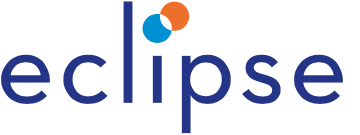
The life coaching process starts with laying a solid foundation, and is vital to the success of any program. Here’s my process…
Updated 21 January 2025
You don’t build a solid structure without first making sure you have a solid foundation. The same goes for coaching.
Laying the foundations of the coaching process is the first step towards successful coaching outcomes.
Here’s how I ensure your coaching journey is built upon firm ground…
Life Coaching Process 01: Getting to know each other
Coaching is a relationship built on trust.
That’s why it’s important to know a bit about your coach and how you can work well together before embarking on a coaching program.
To that end I offer a free no-obligation clarity session where we introduce each other, have a chat, and discuss your specific situation and needs.
In this session you get a good understanding of who I am, how coaching works, and an outline of what it will look like for you.
Everything is transparent, and you can ask any questions you like.
We talk about the areas you’re looking for help with, how the life coaching process works, and the outcomes we’re after.
There’s never any pressure, and you don’t have to decide straight away about signing up for coaching.
If we’re a good fit and you decide to go ahead, we book the first paid session. From this point on, you have a personal coach that’s always on your side helping and guiding you to what you want to achieve in life.
Life Coaching Process 02: Foundation Session
The first paid session lays the foundations of the coaching process.
It’s fundamentally a Q&A session where I ask some ‘big questions’ that get you thinking about the most important stuff in your life.
The result of this session is what’s called your Foundation Document. We don’t need all the perfect answers during the session, as you’ll have a week to think about and fine-tune the document to suit you, and take ownership of it.
Here are the questions you’ll get…
1. What makes you happy?
Doing more of the things that make us happy in our lives means we’re happier overall.
Sounds really obvious, but how often do we neglect a lot of these things as we get more involved in being ‘busy with life’?
Perhaps you used to play a musical instrument but haven’t picked it up in years. Maybe you love hiking in nature but just don’t seem to have the time any more. You could have lost touch with someone whose friendship you value?
Identifying these things that give us joy can help us proactively schedule them back into our lives.
2. What are your core values?
Our core values are the principles we tend to live by, and if we go against them, we feel uncomfortable and ‘out of sync’.
Everyone has a different set of values, but most of us haven’t taken the time to discover what they are and write them down.
This can be an incredibly powerful exercise. When you know your values and can articulate them clearly, making decisions, responding to events, and planning for your future all become a lot easier.
Aligning your behaviours, goals and intentions as much as possible with your core values gives you meaning and purpose.
3. What are your priorities right now?
This is where we identify those areas we want to focus on the most.
Common life priorities include career direction, family, lifestyle, time management, health and fitness, confidence levels, getting motivated, starting a business, or finding meaning and purpose.
Making sure most of your time is spent on your priorities is a key aspect of an effective life coaching process.
4. What sort of person are you?
It’s useful to have an understanding of your own fundamental personality – who you are.
Knowing your strengths allows you to play to the characteristics that give you satisfaction and fulfilment.
On the flip side, knowing your personal weak spots can help you to go easy on yourself if you find you’re struggling in specific areas, and can get you thinking about how you might be able to build certain skills.
5. What kind of person do you want to be?
Here, we’re not looking to change who you are, but more to think about what behaviours you want to address.
For example, if you’re a procrastinator, you may want to be more proactive. If you’re very shy in social situations, you may want to become more confident. If you feel lazy a lot of the time, you might want to feel more energised and motivated.
Knowing what we want to improve on helps us to become who we want to be – the best version of ourselves.
6. What does your ideal life look like?
This is a fun question, because there are no constraints. We’re only thinking about the ‘what’, not the ‘how’ at this stage.
Seeing your ideal life written down like this can open up your mind to what’s possible.
In this part of the process we’re thinking about the big picture stuff.
- What do you want in your life?
- How do you want to be feeling?
- What kind of lifestyle do you want to be living?
- Have you thought about what kind of work do you want to be doing?
- What material things do you want?
This is the start of your sense of clarity and direction.
Having a clear picture of your desired lifestyle ensures your short-term goals and plans fit into your long-term vision.
Building Upon Your Solid Foundation
Laying a solid foundation at the beginning of the life coaching process is key to the results you can expect from a premier coaching program.
On this foundation, we’ll create concrete plans that will include the building blocks of goals, strategies, habits and mindset shifts.
Now the groundwork has been done, we’re ready to start building your future. How high and how majestic do you want it to be?
It’s up to you.
Copyright (C) 2021-2025 Eclipse Life Coaching Ltd
